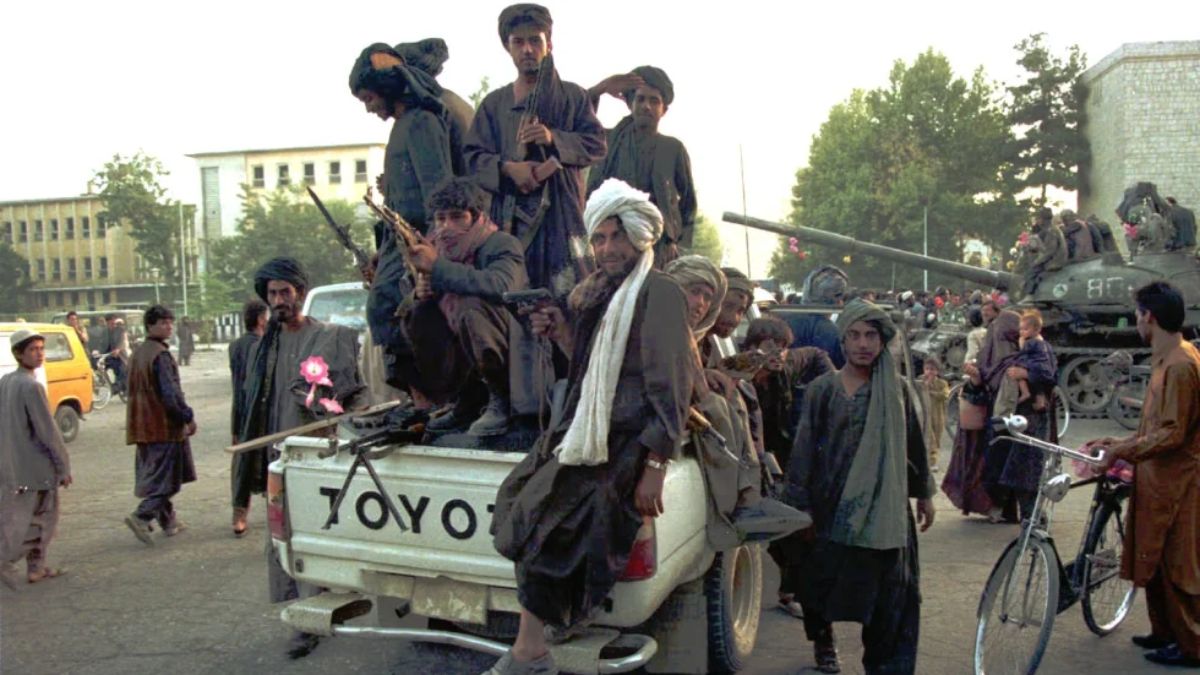On September 27, 1996, the Taliban, led by Mohammad Omar, captured Kabul and declared Afghanistan an Islamic state.
This brought down the government of President Burhanuddin Rabbani, a key leader among the Afghan mujahideen who had fought against the Soviet invasion. By 1998, the Taliban had taken control of nearly 90 per cent of the country.
Also on this day in 1940, Germany, Italy and Japan signed the Tripartite Pact, which sealed their alliance. The three nations came to be known as the Axis powers.
As part of Firstpost Explainers’ History Today series, here’s a look at what happened on September 27:
How the Taliban seized Kabul
On this day in 1996, the Taliban captured Kabul, Afghanistan’s capital, taking control of nearly two-thirds of the country.
The group, formed in 1994, was made up of former fighters from the Afghan resistance, known as the mujahideen, who had fought the Soviet occupation in the 1980s.
Their goal was to enforce their version of Islamic law across Afghanistan and drive out any foreign influence.
Once in power, the Sunni Islamist group imposed harsh restrictions.
Women were forced to cover themselves fully, barred from education and work, and not allowed to travel without a male relative. Television, music and non-Islamic holidays were outlawed.
By 2001, the Taliban seized almost all of Afghanistan, except for a small area in the north. Only Pakistan, Saudi Arabia and the United Arab Emirates recognised their government.
Impact Shorts
More ShortsA major turning point came after the September 11, 2001, attacks in the United States. Nineteen hijackers took control of four planes. Two struck the World Trade Center towers, one hit the Pentagon, and another crashed in Pennsylvania. More than 2,700 people died.
The attacks were planned by al Qaeda leader Osama bin Laden, who was based in Taliban-run Afghanistan.
Within weeks, the US and allied forces invaded Afghanistan, determined to end Taliban support for al Qaeda and prevent Afghanistan from being used as a base for terrorist operations.
Although removed from power, the Taliban regrouped and its members continued to operate during the long conflict.
In the years that followed, the Taliban rejected the authority of the Afghan government, which they saw as imposed by foreign powers, and pushed instead for direct talks with the United States.
Talks began in 2018 and led to an agreement in February 2020.
The deal promised a full US troop withdrawal within 14 months, while the Taliban agreed to stop attacks on US forces and deny al Qaeda and its allies a safe base in Afghanistan.
The group regained power in 2021, twenty years after being ousted.
The formation of Axis powers
On this day in 1940, Germany, Italy and Japan came together as allies with the signing of the Tripartite Pact in Berlin.
The agreement promised mutual support if any of the three were attacked by a country not already part of the war.
The pact was aimed mainly at the United States, sending a clear warning to think carefully before joining the Allies.
It also divided the world into two spheres of influence.
Japan accepted “the leadership of Germany and Italy in the establishment of a new order in Europe,” while it was given control over “Greater East Asia.”
This Day, That Year
1907: Indian freedom fighter Bhagat Singh was born.
1939: German forces captured 140,000 Polish soldiers after Warsaw fell to Hitler’s army.
2008: Chinese astronaut Zhai Zhigang carried out the country’s first spacewalk.
2021: R&B singer R. Kelly was found guilty in a sex trafficking case in New York, after years of escaping accountability over multiple accusations involving young women and children.
)